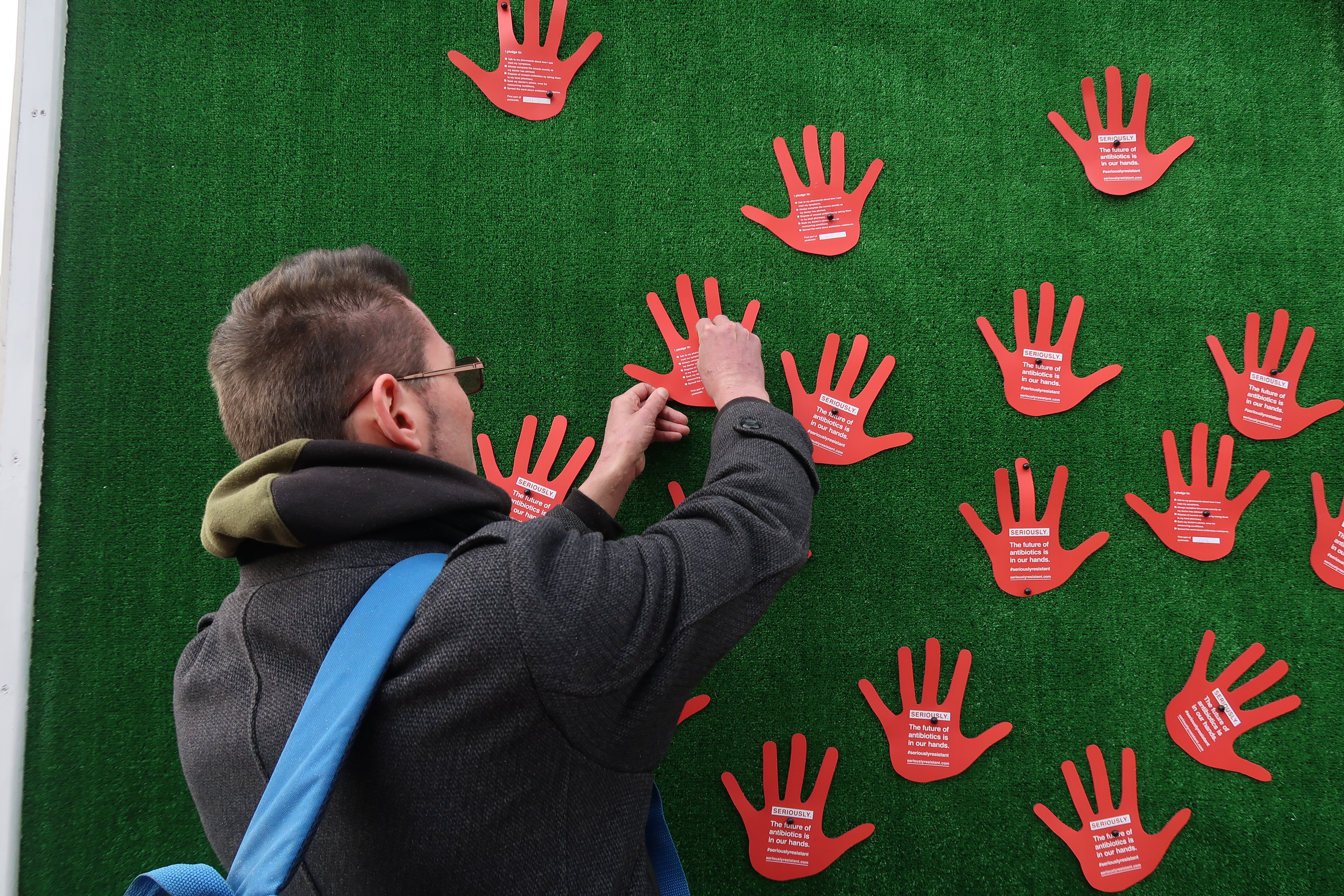Two years ago Leeds was among three universities to share a £9.5 million award from the Medical Research Council. The aim was to advance research into diagnostic tools and prevent the unnecessary use of antibiotics, as part of a larger initiative drawing attention to the global spread of antibiotic resistance. The Gryphon dove into the world of resistant super microbes to find out what has happened to the £3.8 million award share by chatting to Dr Jack Goode, a postdoctoral scientist at Leeds Institute of Biomedical and Clinical Sciences.
If you have managed to get out of the library recently you will have noticed the NHS Seriously Resistant advertising campaign currently circulating on buses and posters – you may even have encountered the enthusiastic campaign volunteers around the city. This, along with intensified research on the topic, is of course is not a coincidence. As the campaigners will tell you, there is an urgent need for raising awareness about antibiotic resistance. We’re facing a serious problem; seemingly harmless infections no longer have a simple antibiotic treatment.

Antibiotics kill bacteria by targeting specific cellular structures unique to bacteria, such as their cell wall, ability to synthesise protein, or enzymes necessary for keeping the bacteria alive. Antibiotics do nothing at all to a viral infection, such as the common cold or influenza, as viruses are structurally very different from bacteria. Recently, doctors have started to observe a reduced effect from prescribed antibiotics, even on simple bacterial infections that were previously easily treated. This is due to the development of resistance. Every time bacteria are exposed to an antibiotic, the majority of the culture will die, but there’s always the risk of one or more bacteria developing mutations to help them survive. Bacteria have been known to develop efflux pumps in the cell wall, which simply flush the antibiotic back out of the cell, or even developing minor changes to enzymes so that they are no longer susceptible to the effects of the antibiotic. This allows that specific bacterium to survive and start growing into a more resistant strain. The next time someone is infected, the infection will be slightly more difficult to treat, requiring a higher dose of antibiotic. In turn this increases the selective pressure, resulting in even more resistant strains appearing. This especially becomes a problem when a course of antibiotics is not completed. Even though you might feel fine, the few resistant bacteria may still be alive in your body, and by discontinuing treatment, you allow these to survive and potentially spread. In the past development of some resistance has not been so much of a problem, as alternative, more powerful antibiotics have been available. Now we are facing a situation where even these drugs have limited effect. When severe antibiotic resistance develops we may find ourselves in a situation where the clock is turned back a hundred years, and people will again die from simple infections.
“A local example of this is Super Gonorrhoea, which was originally identified in Leeds and continues to be a stubborn problem which has now spread globally”, says Dr Goode. As a patient, this means that if you are diagnosed with gonorrhoea, you’re no longer guaranteed to be cured by a simple course of antibiotics. “Given that it can be a symptomless illness this is concerning, as it means that people may be unwittingly spreading a drug resistant infection which may require multiple doses of antibiotics to cure, again exacerbating antibiotic resistance.”
“As we are now into the second year of this project, the Research Council award money is being used to develop and validate prototype tests for injections. These blood tests will hopefully be aimed at patients who go to their doctor presenting symptoms of either a viral or bacterial infection. By doing a quick pin-prick test, the doctor will be able to confidently diagnose the infection and ensure that antibiotics are only being used where absolutely necessary. This will enable the more responsible use of antibiotics and extend the useful life cycle of both existing and future antibiotics.”
Specifically, Dr Goode is working on optical nanosensors, which can assess the body’s reaction to an infection. The way the immune system responds to a viral infection is subtly different to a bacterial infection and by measuring four different proteins in the blood, it will be possible to determine if an illness is being caused by a bacterium or a virus.

“We are only just beginning to encounter the tip of the iceberg where patients are dying from previously treatable diseases, such as minor infections which rapidly escalate and cannot be tackled. “Alexander Fleming, the father of antibiotics, warned of the dangers of overuse of antibiotics when developing penicillin – sadly this was not heeded and resistance has taken hold”.
To find out what you can do to help in the fight against the super bugs, visit the Seriously Resistant campaign website to get involved or make a pledge, or chat to one of the friendly volunteers when you next see them – and make sure to always finish a course of antibiotics as prescribed by your doctor!
Louise Müller
Images: Seriously Resistant Campaign/Magpie

